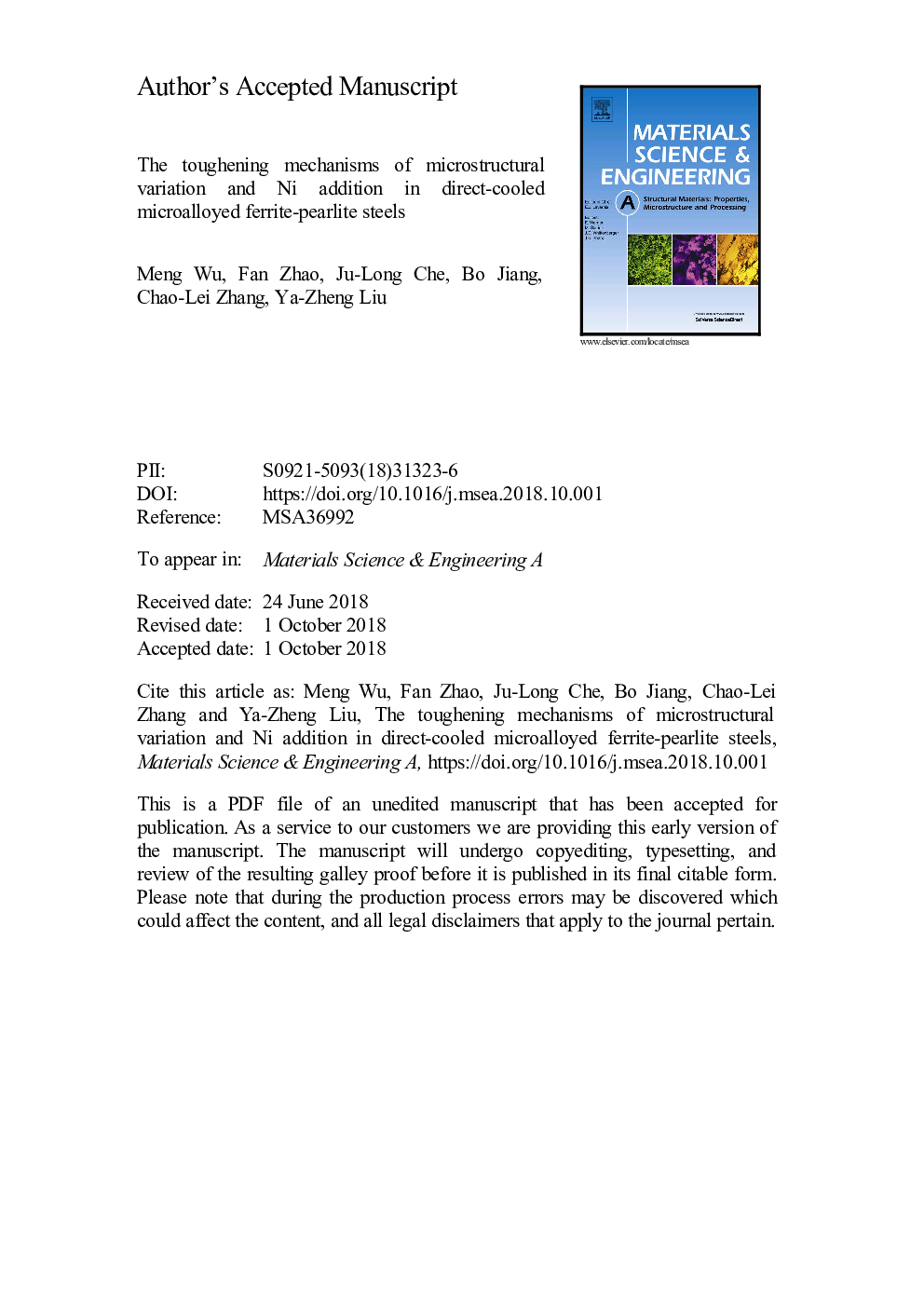| Article ID | Journal | Published Year | Pages | File Type |
|---|---|---|---|---|
| 11020062 | Materials Science and Engineering: A | 2018 | 28 Pages |
Abstract
The toughening mechanisms of microstructural variation and Ni addition were investigated in two direct-cooled microalloyed ferrite-pearlite steels by using the U-notched Charpy tests. Results show that the impact toughness of the low Ni steel decreases dramatically from 110â¯J to 20â¯J when the prior austenite grain size increases from 10â¯Âµm to 37â¯Âµm, and then stays unchanged as the prior austenite grain size continues increasing from 37â¯Âµm to 90â¯Âµm. When the prior austenite grains are finer than 37â¯Âµm, the cleavage fracture is much postponed and the area of ductile fracture is much enlarged by the significantly improved ability to perform plastic deformation. When the prior austenite grains are coarse, the energy absorbed by cleavage, which is the main mode of fracture, conforms to the Griffith type equation and is much less compared to that consumed by ductile fracture, leading to the low impact toughness. The cumulative effect of ferrite content and pearlite interlamellar spacing on impact toughness is not obvious, because their influences are contradictory as the cooling rate is raised. There is a steady enhancement of about 20â¯J in impact toughness of the high Ni steel compared to the low Ni steel, when the austenite grain size exceeds about 37â¯Âµm. The area of ductile fracture is enlarged by the increased dislocation mobility in high Ni steel, resulting in the improvement of impact toughness. It is difficult to refine the prior austenite grain size to less than 37â¯Âµm of microalloyed ferrite-pearlite steels through optimizing forging and cooling process. However, small amount of Ni addition is beneficial to the impact toughness and does not increase the cost significantly.
Related Topics
Physical Sciences and Engineering
Materials Science
Materials Science (General)
Authors
Meng Wu, Fan Zhao, Ju-Long Che, Bo Jiang, Chao-Lei Zhang, Ya-Zheng Liu,
